Corynne Cooper is the General Manager of 111 S. Wacker Fitness Center, managed by FFC. In part three of this three-part series, Corynne shares how her Olympic dreams lead her to collegiate athletics and how the sport of gymnastics has influenced her life.
Having spent so many years training, I of course had dreams of representing my country in the Olympics. However, we all know there are only a select few who make it that far. Nonetheless, I still went as far as I could. I competed nationally and internationally, mostly in the US and Europe. This sport provided a path for me to travel to places I may not have ever seen.
Related: Read Part One of Corynne’s Story Here
Around age 14, once I realized the Olympics was not in my future, I turned my sights to collegiate athletics. I had no idea of the expense associated with going to college, however, I did know I wanted to get a degree, and I didn’t want my parents to feel obligated to fund it.
Growing up, my parents made it very clear that they would fund our education, no matter what that meant for them in regards to their own lifestyle and retirement. However, while the Olympics did not happen, a college scholarship did. I accepted a full scholarship to the University of Iowa and was a four-year contributor to the gymnastics team. I competed in every single competition during my four year tenure.
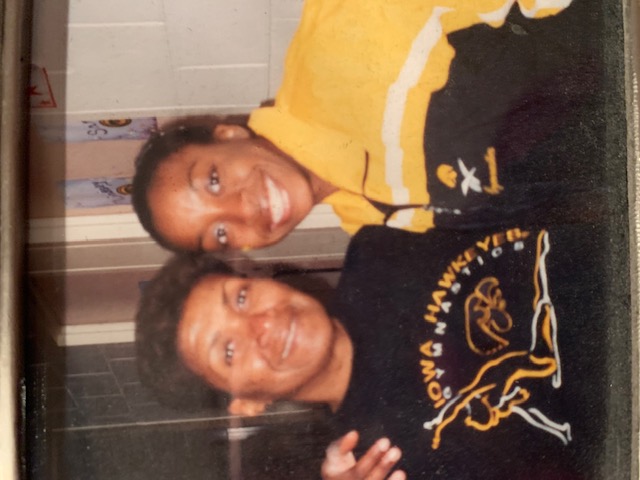
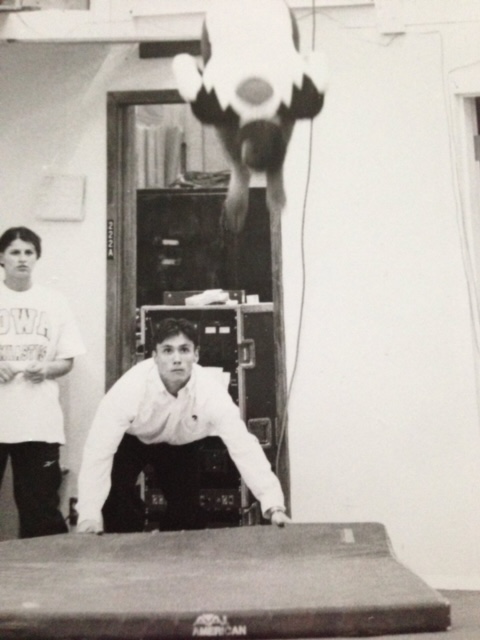
It amazed me how different USA gymnastics was from collegiate gymnastics. USA gymnastics is amazingly intense, and in some cases, not team-focused at all. Collegiate gymnastics is more energetic – with fans screaming, school-colored pom-poms and the school’s fight song playing after a stuck landing. While Individual competition is important, collegiate gymnastics is heavily team-focused. We’re all rooting for each other to do well. There’s techno music playing in the background at a collegiate competition, rather than dead silence or elevator music playing at a USA gymnastics competition.
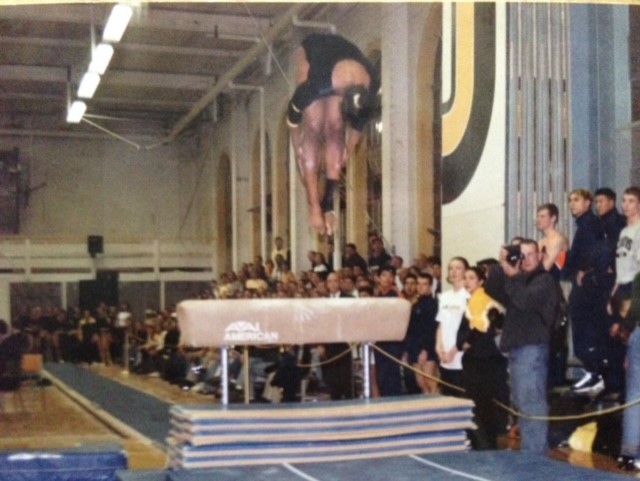
The sport allowed me to travel to different colleges across the country and also solidified a handful of friendships I cannot live without today. I have attended bridal showers and weddings and have even been a Maid-of-Honor on a few occasions. I have attended various baby showers and Christenings, and now that I’m older, I have been a part of so many moments related to their growing families – vow renewals, graduations, and house warmings.

Related: Read Part Two of Corynne’s Story Here
While watching the Tokyo Olympics this past summer – or any Olympics for that matter – I felt a strong sense of nostalgia and competitiveness but also empathy. The life of a competitive gymnast is so difficult but also unbelievably rewarding. When I watch these pretty girls on the TV screen, I’m sure they all want to be there. They have trained countless hours to perform for less than five minutes. Think about that. A vault takes about 10 seconds, a bar routine is about 45 seconds, beam and floor routines are no longer than 90 seconds each. Thousands of hours of work. Repeating skills over and over and over again searching for perfection. All of this time and effort to perform and be judged in five minutes.
During the 2020 Olympics, there was a lot of talk about Simone Biles stepping back from Olympic competition. She was the reigning World and Olympic champion and the medals were there for her taking. How could she step away from the possibility of adding even more medals to her collection?
For those who may be confused by her decision, listen up. One of the main things gymnasts must have is something called “air awareness.” Air awareness is knowing where you are and what your body is doing while in mid air in the midst of doing your skill. The goal with just about every skill is to launch yourself into the air and land on your feet safely. Landing in any other way can result in deductions or injury. If a gymnast loses this awareness, it’s called the “twisties” or being “lost in the air.”
Some say it’s similar to vertigo, and a gymnast has no idea that this will happen. It’s a mental block that slaps you in the face. It’s doubtful a top athlete would plan to have this issue at the Olympic Games. Simone Biles did a vault, and to no fault of her own, she only did 1.5 twists instead of the planned 2.5 twists. Luckily, she landed on her feet, but it was obvious by the positioning of her body in the air and her face when she landed that something was wrong.
When you’re lost in the air, all you can do is hope you land safely and not on your head or neck. Momentum, gravity and prayer are carrying you at that point. Getting lost in the air breaks your confidence, and you don’t know if you can safely do the skill again. Is a medal worth a severe injury? Simone Biles made the decision to preserve her long term health and we have to respect that decision. She has a lot of life ahead of her after the sport of gymnastics ends for her.
Physically, gymnasts are strong, powerful, flexible, coordinated and have incredible air awareness. Mentally, gymnasts are disciplined, health-conscious, respectful, humble and hard-working. To this day, the things this amazing sport has taught me are embedded within my soul, as if I were born this way.
This sport, coupled with an amazing upbringing, has made me who I am today. I am respectful to everyone and have never talked back to an adult. And when I make a mistake, I’m still so hard on myself. Physically speaking, the athlete in me is still going strong. I still work out daily, two times per day actually. I will run myself ragged before I ever quit. I am up before 4 AM, seven days per week, and I’m constantly assessing my diet to see how I can become healthier. Once a gymnast, always a gymnast!
Even though my gymnastics career is in my rearview mirror, my competitive spirit is still there! I feel like I still compete every day, either with myself to beat my previous time, weight or reps, or with the oblivious person next to me in a class or on the treadmill. I recently raced my significant other up the bleachers. Well, I was racing…I don’t think he cared either way.
When gymnastics ended after college I relaxed a bit. It felt odd to wake up without a set plan. It was weird to not have a four hour practice every single day. I didn’t know what it felt like to spend a weekend at home, not traveling to a competition. It was difficult for me to adjust to not having every second of my day/week/month planned. While in graduate school, I decided to try powerlifting and Olympic lifting and competed for about five years.
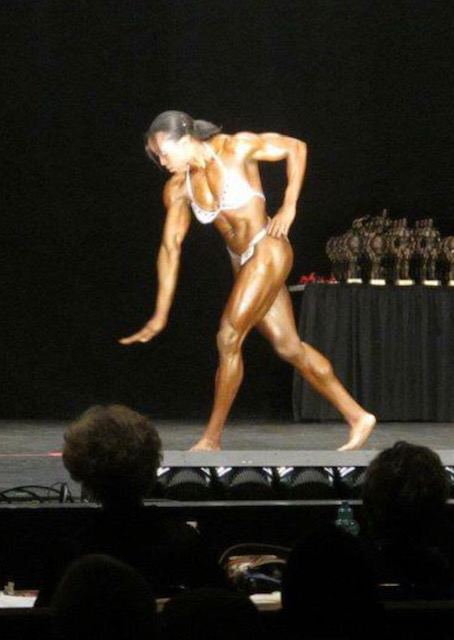
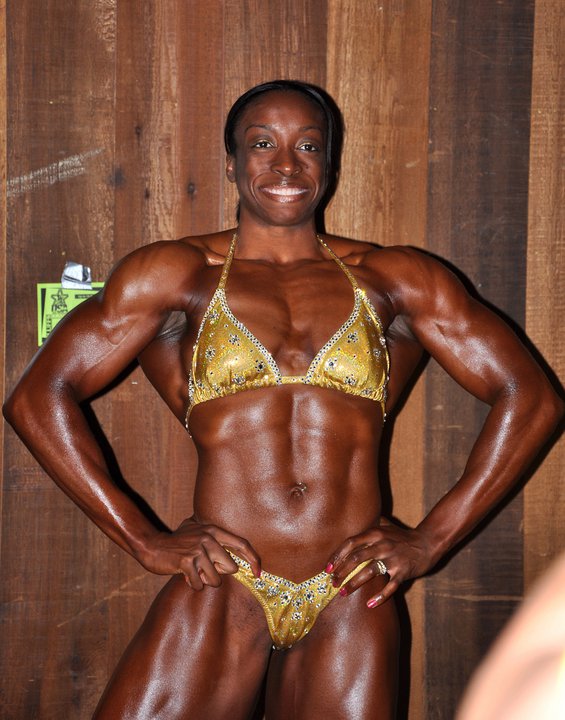
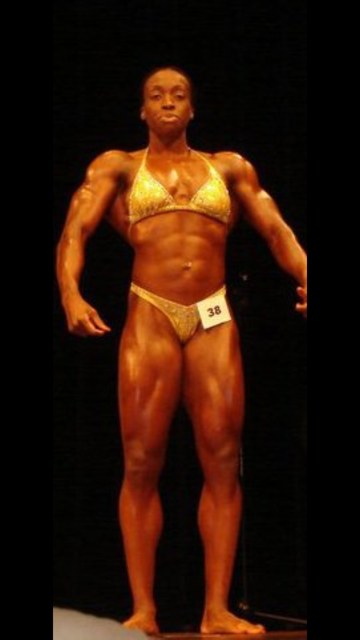
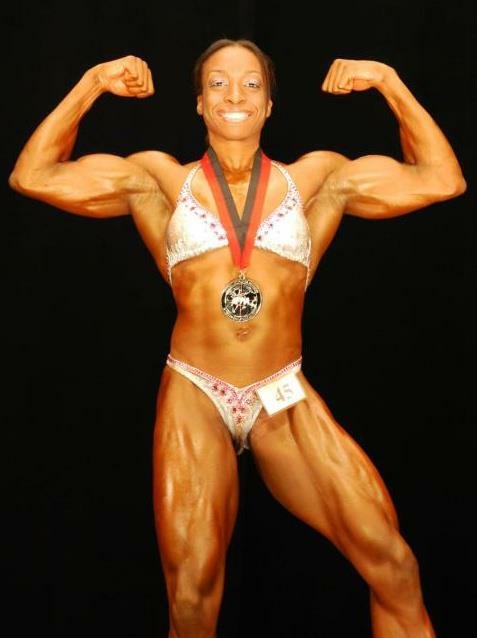
While studying and competing in both of these circuits I took on bodybuilding as well. I won my pro card in bodybuilding in only my second show and competed professionally in bodybuilding for another 10 years! Again, traveling throughout the country doing shows, working booths at fitness events and being hired to do guest posing events. After bodybuilding I took on CrossFit and competed Regionally. I’m proud when I look back on the things I’ve done, but I also still feel unfinished. What’s next?
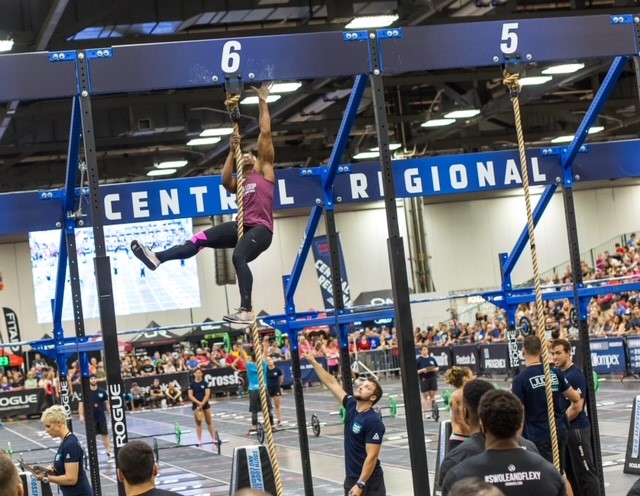

Post written by Corynne Cooper, General Manager at 111 S. Wacker Fitness Center – managed by FFC.